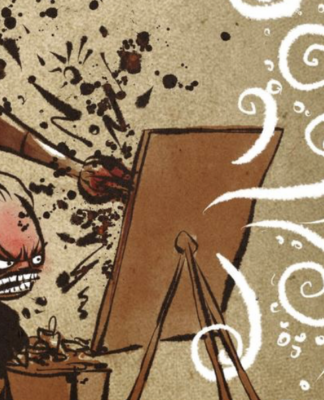We all experience common struggles like loss, fear of the unknown, insecurities and isolation, even though the outer circumstances look different for each one of us. These common human elements touch me and one that I always notice, in myself and in my clients, is the tendency toward harsh self-criticism.
These habitual thoughts about being unworthy, unlovable, incapable and never enough cause so much of our suffering. They stifle our true nature and can impact our work, relationships and mood. The problem with self-criticism is that because we are often unaware of these thoughts or tend to minimize their frequency or the impact they have on us, we can become identified with them. This means that instead of being able to label these thoughts as thoughts, we feel that they are true.
If you are not convinced self-criticism is a toxic habit, brain science has something to say about this matter. Both neuroscience and social science research suggest that self-criticism actually shifts the brain into a state of self-inhibition and self-punishment. This causes us to disengage from our goals, feel threatened or demoralized which can halt our ability to take action, often leading to rumination, procrastination and further self-criticism.
I often suggest to clients ways to “soften” this type of harsh thinking and often that suggestion is met with concerns. It can be a process to begin to “dis-identify” with self-critical thoughts, perhaps because we have heard them from others and have internalized them so deeply into our identity. Or, these thoughts might be a coping strategy when we face fear of failure, worry about belonging or being judged by others. So often, the first step is using inquiry and mindfulness to be able to step back enough from these thoughts to make a shift.
People might cling to self-criticism with a sense that it will motivate them or make them better people and of course if things aren’t going well or we have important goals, “acceptance and compassion” can feel like giving up. An article in the Berkley Science Review has good tips on how to use self-criticism constructively, including focusing on specific, changeable behaviors rather than internal, unchangeable attributes and practicing self compassionate criticism which sounds like “Yes, I made a mistake, but I’m not a horrible person.”
Self-compassion is a great medicine for most of our modern ills- it balances our fears, insecurities and isolation with positive emotions that allow us to feel calmer, more connected and confidant. Self-compassion activates our brain’s care giving and self-awareness system, which can make thoughts of being capable, worthy, accepted and confident easier to access and believe. It’s not a “weak” approach- it’s good brain health and far more motivating in the long run. So let’s talk about how to do it!
Practice:
Use Mind-Body Awareness to Recognize and Soften Self-Critical Thoughts
Start right now by noticing sounds in the room, the temperature, the colors and light. Notice the texture of your cloths or a surface.
Notice your breathing – without judging it, just allowing it to be how it is. If you can, see if you can deepen your breath.
Notice the seat beneath you or your feet on the ground. Settle in as you become aware of the support that is there for you.
Is there a self-critical thought you can recognize, one that has been hounding you all day. For example, “I should have had this article done by now. I’m undisciplined.”
Just allow yourself to be with the thought, don’t try to talk your way out of it or change it just yet.
Notice how this thought makes you feel. Investigate it by noticing your feelings and tension in the body. Our body responds to these thoughts, often by constricting which mimics a fear or stress response like fight, flight or freeze. None of these help us perform optimally.
Approach these thoughts, feelings and body sensations with an attitude of curiosity, openness and non-judgment. Sit in mindful awareness for a minute and see what shifts, softens or changes by doing so.
Apply self-compassion. Is there another thought that I can also think about this situation? For example, “I didn’t sleep well last night, I’m doing pretty good considering how tired I am.”
Notice any further changes in thoughts, feelings and tension in the body as you shift your narrative about the situation.
Find an alternative strategy. For example, “I will take a 20 minute power nap, then get back to this rather than power through.” or “I will go to bed earlier tonight.”
If you are stuck on the step of still feeling the self-critical thought is true, use an inquiry process with the thought. Is it really true? Could you prove it to Judge Judy or a court of law beyond a reasonable doubt? If you really need help here, call a trusted friend, one you know will remind you how truly wonderful you are!


 Renee Podunovich is a licensed Clinical Mental Health Counselor offering psychotherapy in Salt Lake City, UT and beyond via online services. Renee earned a BA in Sociology and Human Services and a MA in Counseling. She has worked in human services for over 25 years and has been in private practice for 10 years. Renee is interested in health and holistic wellness, dance and movement, sustainable living and innovative designs and solutions. She is a freelance writer and has published two books of poetry: "Let the Scaffolding Collapse" (Finishing Line Press, 2012) and "If There is A Center" (Art Juice Press, 2008). Her writing workshops (in person and online) are designed to use creative writing as a tool for centering, reflecting and for personal growth. Renee offers caring, compassionate support and focused guidance to help people come into balance with their own inner wisdom and self-healing abilities and to make meaningful and lasting changes in their lives. She believes optimal wellness comes from feeling connected to our essential nature within and to the larger world around us. Renee's specialty is in mind-body therapies including EMDR therapy, mindfulness practices and meditation techniques that build awareness and compassion. Whether you are in a period of difficult transition or wanting to deepen your connection to your creative process and build positive resources, Renee provides a safe environment where your wisdom and needs are put first. Get ready to engage at the next level in your professional, creative or personal life!
Renee Podunovich is a licensed Clinical Mental Health Counselor offering psychotherapy in Salt Lake City, UT and beyond via online services. Renee earned a BA in Sociology and Human Services and a MA in Counseling. She has worked in human services for over 25 years and has been in private practice for 10 years. Renee is interested in health and holistic wellness, dance and movement, sustainable living and innovative designs and solutions. She is a freelance writer and has published two books of poetry: "Let the Scaffolding Collapse" (Finishing Line Press, 2012) and "If There is A Center" (Art Juice Press, 2008). Her writing workshops (in person and online) are designed to use creative writing as a tool for centering, reflecting and for personal growth. Renee offers caring, compassionate support and focused guidance to help people come into balance with their own inner wisdom and self-healing abilities and to make meaningful and lasting changes in their lives. She believes optimal wellness comes from feeling connected to our essential nature within and to the larger world around us. Renee's specialty is in mind-body therapies including EMDR therapy, mindfulness practices and meditation techniques that build awareness and compassion. Whether you are in a period of difficult transition or wanting to deepen your connection to your creative process and build positive resources, Renee provides a safe environment where your wisdom and needs are put first. Get ready to engage at the next level in your professional, creative or personal life!

















